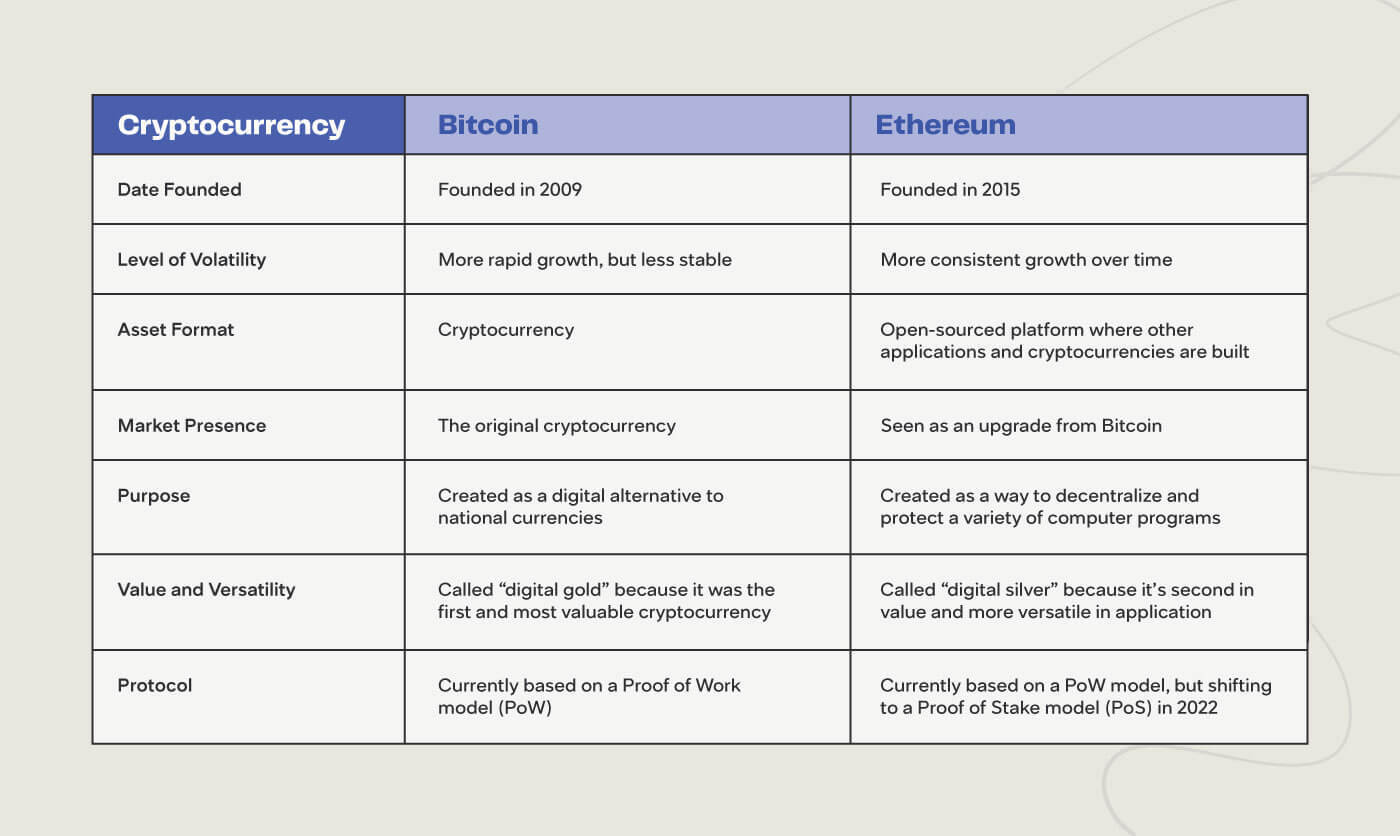How to Donate Ethereum to Nonprofits

When people think of cryptocurrency, Bitcoin is typically the first thing that comes to mind. That’s understandable considering Bitcoin makes up about 60% of the cryptocurrency marketplace. However, it’s far from the only coin in the game.
Any non-Bitcoin currency is referred to as an alternative coin, or “altcoin.” Ethereum, the most commonly used altcoin, has emerged as the second largest cryptocurrency in the market.
Donating cryptocurrency can provide users with enhanced speed and security and help boost nonprofits’ visibility to new audiences. Explore our step-by-step guide to discover how donating Ethereum can positively impact the social sector while helping donors avoid transaction fees and offset capital gains taxes.
What Is Ethereum?
Technically speaking, Ethereum isn’t actually a cryptocurrency—it’s a ledger-technology upon which other programs can be built. This means other tokens can live on the platform. Ether is the official digital currency that powers Ethereum, but other cryptocurrencies like Tether, Uniswap, and Chainlink have been built on the same platform.
The central concept behind Ethereum was developed by Russian-Canadian programmer Vitalik Buterin in 2015 when he was just 21 years old. The ledger-technology was then developed in partnership with other leading minds in the field, but Buterin remains the face of the platform.
Applications beyond just cryptocurrencies can also be built on Ethereum’s ledger, including everything from virtual world-building games to micro-blogging sites. These decentralized applications, or DApps, are similar to any other online application, except for the fact that they’re not hosted on a single server. Each DApp is autonomously scattered across a number of independent devices, 87% of which run on the Ethereum platform.
Ethereum’s blockchain is made to be more robust and innovative than Bitcoin. Some industry experts even believe Ethereum to be the most likely altcoin to overtake Bitcoin in the future.
How Does Ethereum Compare to Bitcoin?
As the two largest cryptocurrencies, Bitcoin and Ethereum are often evaluated against each other. While they each possess their own unique makeups, these two digital currencies also share a few fundamental similarities.
Similarities
- Well-known cryptocurrencies with marketplaces worth more than $350 million
- Decentralized currencies based in the blockchain
- Possess a level of volatility because of the ever-changing nature of digital currency
Differences

Why Should You Donate Ethereum?
Similarly to Bitcoin, there are numerous reasons why donors are sharing their Ethereum wealth with charitable organizations. Here are a few of the main motivators:
- Speed: The blockchain’s design as a decentralized server makes it quick and easy for donors to give. Plus, donations of decentralized currencies, like Ethereum, are faster for the organization on the receiving end. No more waiting for bank transfers or paper checks.
- Cost: Credit card donations require processing fees. These fees typically cost nonprofits about 2% to 3% per transaction, which quickly adds up. Ethereum donations on the other hand are free of processing fees since no one owns the blockchain.
- Tax Benefits: Because cryptocurrencies are considered a capital asset by the IRS, any profit you make is subject to capital gains taxes. Donating your Ethereum to nonprofits offsets these taxes, which likely means you’ll owe less on your tax return.
- Supporting Tech-Savvy Nonprofits: The more cryptocurrency donations a nonprofit receives, the more likely other nonprofits are to adopt their acceptance. That means more organizations could gain exposure to new audiences and generate another potential revenue stream to drive their missions forward.
How to Donate Ethereum
1. Get a Digital Wallet
Users must have a virtual wallet to store and donate Ethereum. These wallets are similar to well-known versions like Apple Pay and Google Pay, however neither of these allow you to buy or spend cryptocurrency without another third-party service. Some of the most popular digital wallets for trading crypto include:
2. Identify Eligible Nonprofits
Due to the volatility of cryptocurrencies, not all charitable organizations accept them as a donation method. However, increasingly more nonprofits are beginning to accept this form of payment because of its potential for growth.
“The Ethereum network shows more promise due to its real-world applications and ability to store value. It represents the future of programmable money and smart contracts in a way that legacy cryptocurrencies, like Bitcoin, cannot.”
3. Determine the Right Donation Size
Before making a gift, be sure to educate yourself on the price fluctuations of Ethereum. While its volatility may be hard to fully grasp, it’s helpful to think about it like donating stocks or bonds.
Where to Donate Ethereum
Due to the nature of decentralized platforms, donating Ethereum to a nonprofit isn’t as straightforward as giving through traditional means, like a check or credit card. The organization must be prepared with the right tools and technology to accept these digital donations. Thankfully, there are a number of sources that can help you identify these tech-savvy nonprofits and donate with relative ease.
- Classy: Classy’s Crypto Giving is built directly into Classy Pay, which means that receipting, payout reporting, and reconciliation will happen directly in-product, similar to Stripe, PayPal, or Venmo. Check it out today.
- Giveth.io: Self-proclaimed as the “future of giving,” this online platform allows users to donate directly to charitable causes without taking any platform fees. Giveth is limited to donating digital tokens, but has a wide range of nonprofits to choose from.
- CoinUp: This organization simplifies the cryptocurrency giving process by connecting to your digital wallet and donating a small amount of your daily expenses back to the nonprofit of your choice.
- Your Bank: Banks are typically more comfortable working directly with Ethereum than Bitcoin because of its increased stability. The Enterprise Ethereum Alliance (EEA) is a group of financial institutions hoping to use the blockchain technology as a standard for interacting with cryptocurrency.
- Directly to Nonprofits: Heifer International and the Water Project are two examples of organizations that accept Ethereum donations online.
Ethereum and the Future of Nonprofit Cryptocurrency Donations
Ethereum is among the fastest-growing cryptocurrencies. This open-sourced platform presents both nonprofits and donors with a great option for partnering together and furthering charitable causes.
As the market for cryptocurrency donations continues to grow, the number of nonprofits accepting gifts in Ethereum is trending along with it. Educate yourself on the benefits of donating cryptocurrency and keep your eye out for additional organizations offering this innovative payment method in 2022 and beyond.
Posted in Business & Tech Fundraising

Acquire New Donors With Classy Crypto Giving
Subscribe to the Classy Blog
Get the latest fundraising tips, trends, and ideas in your inbox.
Thank you for subscribing
You signed up for emails from Classy
Request a demo
Learn how top nonprofits use Classy to power their fundraising.



